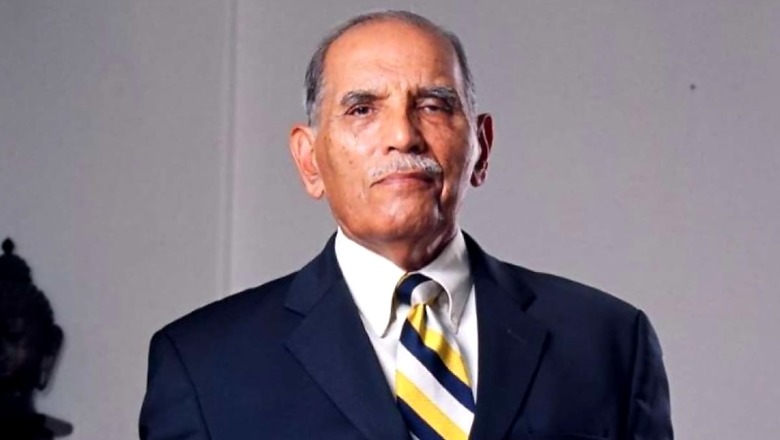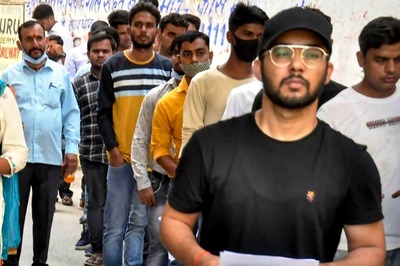
views
Faqir Chand Kohli, widely regarded as the father of India’s information technology industry, passed away yesterday, aged 96. The longest serving chief executive of Tata Consultancy Services, one of India’s flagbearer for its rendered IT services, is regarded as a pivotal figure who changed the shape of IT services in India, and helped turn our country into a hub for the world’s IT requirements. Kohli also chaired Nasscom in the ’90s, and through his stunning career and life, has held numerous leadership, mentorship and advisory positions. Today, the industry that Kohli helped build from scratch is valuated at $190 billion (Rs 14 lakh crore) right now, and by 2025, is expected to touch $350 billion (Rs 26 lakh crore), and account for over 10 percent of India’s GDP.
Speaking in the aftermath of his demise, a Nasscom spokesperson said, “Mr Kohli was the visionary leader who foresaw the opportunity of India in technology services and built TCS many decades back when almost nothing existed in the tech sector in India. His leadership and passion over the decades played a key role in helping establish India as a trusted and quality partner for global corporations, evangelise the importance of technology adoption for India, push for greater research in academic institutions, bring awareness on the importance of local language and hardware industry in India. As Chairman of Nasscom in 1994-95, Mr Kohli led the industry and NASSCOM to build global partnerships in key markets, showcase the opportunity for IT services from India and build a culture of collaboration in the industry members. His engagement with NASSCOM continued through the years providing guidance and support on key industry issues and opportunities.”
Kohli, who was conferred the Padma Bhushan award, served as the deputy general manager of Tata Electric Company until 1967 after returning to India from USA and joining them in 1951, before eventually becoming the company director. Through his tenure, some of his pivotal moments included the introduction of computers at the Tata Institute of Fundamental Research and for Tata Electric. With the latter setting up a computer-controlled power line between Mumbai and Pune, Kohli held the distinction of overseeing only the third power line of its kind back then. He then helped set up TCS in 1969, serving as its CEO before stepping down in 1996. Today, TCS is not just the biggest IT services company in India, but is the largest IT firm globally — with a market capitalisation of $144.73 billion (Rs 10.7 lakh crore).
A TCS spokesperson stated upon the loss, “Mr Kohli joined the company in 1969 at the behest of JRD Tata. He pivoted first into management consultancy, and then over the next two decades, into software development, helping the organisation navigate multiple technology waves over two and a half decades by continually investing in people and staying relevant to customers. He stepped down as CEO in 1996 and continued to play an active role in promoting technology to solve the country’s social problems.”
Highlight his future-forward vision for India’s technology sector, Jayant Krishna, group CEO of UK India Business Council, elucidated how he had the foresight to see India as a manufacturing hub for the world’s technology needs, too. However, such dreams were never to be realised. As Krishna states, “Kohli would depute 20 percent of TCS engineers on domestic projects, that amounted to less than 10 percent to the revenue. He always believed that it would be a shame if Indian software professionals do cutting-edge work for global multinationals, while our own country is deprived of their services. He always regretted that despite his best efforts, the then-Government of India did not pay heed to setting up a world class semi-conductor industry, which was the prime reason that India could never develop an indigenous hardware industry.”
This particularly pivotal anecdote is likely going to hurt India’s technology ambitions today more than ever before, when it aims to rival China, Vietnam and other manufacturing hubs to attract more business to its own shores. It is, hence, safe to state that Kohli’s contributions in India and its technology sector have been humongous, and are lasting impacts that will not be forgotten or undone in haste.
Read all the Latest News, Breaking News and Coronavirus News here




















Comments
0 comment